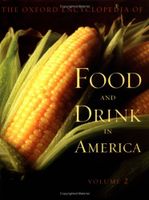Advertisement
Transportation of Food: Ships
Appears in
Published 2004
From the beginning of European colonization, ships have had an important influence on the foods eaten in America. Early English colonies, such as those at Roanoke Island and Jamestown, were dependent on shipments of food from elsewhere. Roanoke failed when war between England and Spain prevented ships from reaching the colony. Likewise, the Jamestown colony was almost abandoned because of delayed ships, only to be saved by the arrival of fresh supplies in 1610. As time passed, agricultural success in America made the colonies less dependent on food imports. Nevertheless, a number of foods—such as fresh fruit, spices, tea, cacao beans, coffee, sugar, molasses, and alcoholic beverages such as wine and brandy continued to be imported by ship throughout the Colonial era. Meanwhile, coastwise ships transported certain commodities—such as wheat, flour, corn, and rice, as well as cider and rum—between the colonies, and they also exported these and other goods to the Caribbean.


